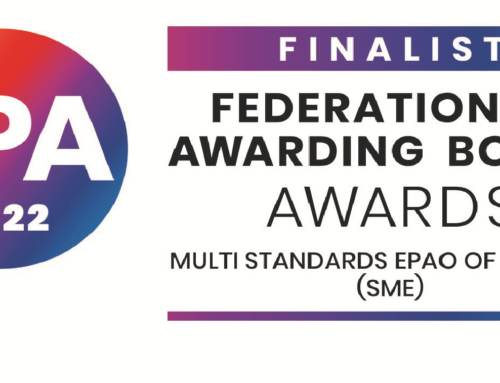
End-point Assesment has changed the face of apprenticeships. Not just in terms of how programmes are delivered, but also in terms of the additional skills apprentices have to develop in order to prove their competence and ability. Ensuring the apprentice is fully proficient in the Knowledge, Skills and Behaviours within the Standard is absolutely vital. However, in addition, many assessment plans require the apprentice to be able to articulate their learning journey in a short space of time at End-point Assessment. Regardless of the assessment method stipulated in the assessment plan, the apprentice must be able to recognise what is being asked of them, reflect on their experiences and shine on the day. This can be achieved much more effectively if the apprentice is well-prepared as Lucy Smith Explains:
“Apprentices need to feel confident to discuss their performance and how they have developed during their apprenticeship. This might be something that the individual has not had to do in the past, and might not be explicitly stated in the standard or assessment plan, but it can make a real difference during the End-point Assessment. Apprentices who have practised discussing their personal development and plans with their managers, mentors and trainers prior to End-point Assessment tend to be more confident in this area, which can help them achieve the higher grades. My advice is to build regular opportunities for the Apprentice to develop these skills into the apprenticeship programme.”
At PAL, we’ve learnt from our in-depth experience of End-point Assessment that it’s vitally important to prepare the apprentice properly. We provide free resources for employers and apprentices including revision and preparation guides for each standard. If you would like to know more about our offer, or about how End-point Assessment works, please get in touch.
info@professionalassessment.co.uk 0800 160 1899






